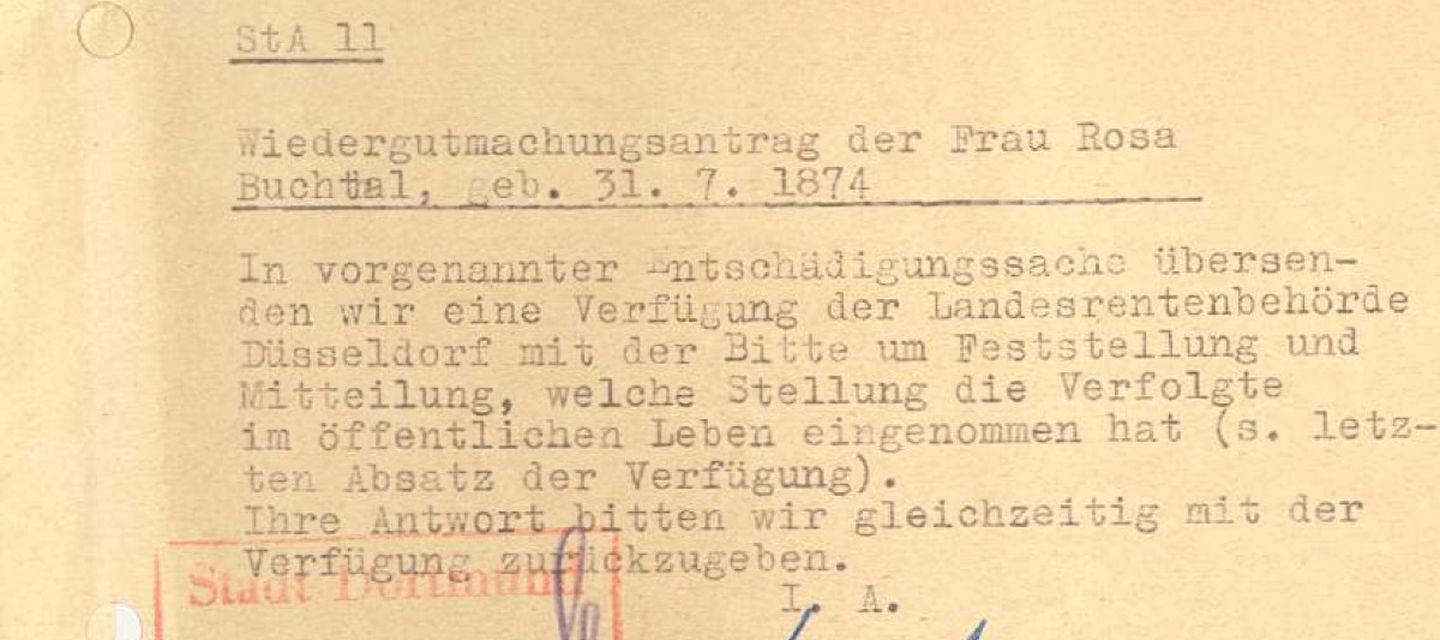
Waves of Restitution, Reparation and Cultural Memory after the Second World War
The debate on reparations and restitution for victims of war, persecution, and human rights violations remains an ongoing process. In this lecture, historian Constantin Goschler will explain why and how these debates have changed in the German context, due to a memory boom, globalisation, changes in the domestic and foreign policy, and generational shifts. Lorena De Vita will comment upon Goschler’s lecture.
In the last decades, the debates on reparations and restitution for victims of war broadened thanks to globalisation and an emerging memory culture. After the Second World War, these concentrated on restitution of property and on compensation for Jews who suffered persecution and were victims of the Holocaust. In the 1990s, the focus of the debate widened to former property in the GDR and to forced labour in wartime industries. Since 2004, compensation for the Herero and Nama genocide came into focus. Only recently, forms of compensation for descendants of slaves have been discussed. In this lecture, historian Constantin Goschler will analyse the development of these debates. He will discuss the changes in focus and intensity as an integral part of the history of Germany since 1945. After Goschler’s lecture, historian Lorena De Vita will provide comments.
About the speakers
Constantin Goschler is a German historian with a broad view of postwar German history. After being a guest lecturer at the Charles-University Prague and a visiting scholar at the Minda de Gunzburg Center for European Studies at Harvard University, he continued his academic career at the Humboldt-University Berlin, the Friedrich-Schiller University Jena and the Ruhr-University Bochum, where he became a full professor for modern history in 2006. Among the many books he published, are Wiedergutmachung. Westdeutschland und die Verfolgten des Nationalsozialismus 1945–1954 and the edited volume Robbery and restitution. The conflict over Jewish property in Europe. During the academic year 2022/23 he was Gerda Henkel Visiting Professor at the German Historical Institute London and the London School of Economics.
Lorena De Vita is Assistant Professor in the History of International Relations at Utrecht University. She is the author of Israelpolitik: German-Israeli Relations, 1949-1969 (Manchester University Press, 2020; pbk: 2022), as well as of scholarly articles and public pieces that have appeared in, among others, Cold War History, International Affairs, Aus Politik und Zeitgeschichte, and The Washington Post. De Vita held several competitive visiting fellowships, most recently, at Oxford University (2023). She is principal investigator of the research project: ‘Holocaust Diplomacy: The Global Politics of Memory and Forgetting’ funded by the Alfred Landecker Lecturer Programme (2021-2026) and she is leading the (NWO-SSH-XS) project ‘Wording Repair’ at Utrecht University.
Hanco Jürgens (moderator) is a member of the academic staff at the Duitsland Instituut Amsterdam. He specializes in German and modern European history. He published on a variety of topics, such as the history of Dutch German relations, German EU-policy, the Third Way, and German missionaries in India in the Eighteenth Century. Currently, he focuses on the history of Germany since the fall of the Wall.
:rgb(-15)

:rgb(-25)

:rgb(8)
